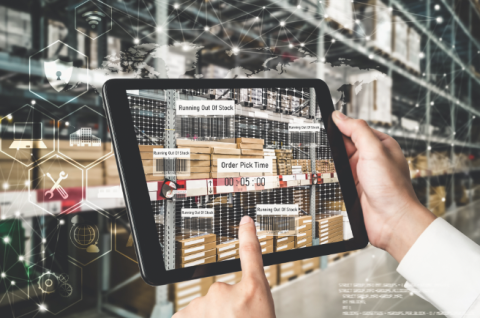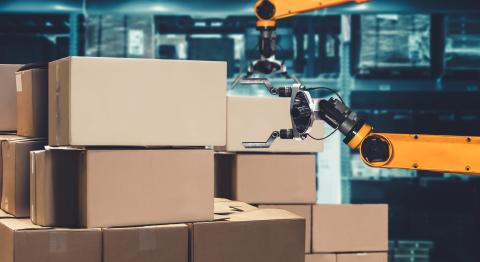AI’s Emerging Impact on Supply Chains
January 10, 2024The rapid emergence of artificial intelligence is disrupting supply chains –– in a good way. Through complex calculations and advanced natural language processing, AI is allowing organizations to analyze massive amounts of historical data from a variety of operational sources more quickly and accurately than ever before. The convergence of AI in supply chains took off during the pandemic, when the crisis disrupted manufacturing, supply lines, and distribution operations. Now, as AI takes hold of nearly every industry, organizations are leaning more on AI to handle the increasingly complex supply chains in a post-pandemic world.
New Successes in Supply Chain Management
Driven by newer, more connected, and more intelligent technologies that can adapt and learn, AI is being used to develop smarter supply chains in a variety of ways.
-
Demand Forecasting: AI analyzes historical data, market trends, and external economic and consumer factors to predict demand with greater accuracy. This helps companies optimize inventory levels, reducing risks of stockouts or overstocking. For example, Uber analyzes ride-hailing patterns to predict demand surges and dynamically adjust driver allocations and prices.
-
Logistics Optimization: AI algorithms optimize transportation routes, considering factors like traffic patterns, weather conditions, and vehicle capacity. This leads to faster deliveries and reduced transportation costs. Companies like FedEx use AI-powered logistics systems for efficient routing and tracking of shipments.
-
Warehouse Automation: AI-powered robots and drones handle repetitive tasks like picking and packing in warehouses, improving efficiency and reducing labor costs. They also minimize the risk of accidents and allow human workers to focus on more complex and strategic projects. Amazon uses autonomous robots that navigate warehouses to retrieve products.
-
Predictive Maintenance: AI analyzes sensor data from machinery and equipment to predict potential failures before they occur. Companies like Siemens and GE leverage AI to help address issues before they happen to prevent costly downtime and production disruptions.
-
Hyper-personalization: AI is helping to personalize inventory management and deliveries based on individual customer preferences. This can lead to faster delivery times and improved customer satisfaction. Nike is using personalized inventory management to ensure availability of popular products in specific locations.
-
Sustainability Optimization: AI analyzes data to optimize production processes and logistics for reduced environmental impact. This can help companies achieve sustainability goals and reduce their carbon footprint. Unilever is using AI to optimize its supply chains, invest in plant-based alternatives, and detect environmental changes.
Emerging AI Tools in Supply Chain Management
The future of AI in supply chains is constantly evolving and expanding. Continuous advancements in technology are leading to even more innovative applications like those below, many of which are starting to gain widespread use.
-
Blockchain Integration: Blockchain technology can be used to track the movement of goods through the supply chain with greater transparency and create more secure procurement systems, while also identifying potential issues and further optimizing logistics.
-
Autonomous Vehicles: Autonomous trucks and drones are being developed for long-distance and last-mile deliveries. Companies like Tesla and Waymo are leveraging this technology to improve efficiency and reduce transportation costs significantly.
-
Advanced Robotics: Robots with improved dexterity and AI capabilities are being created to handle more complex tasks in warehouses and production lines.
-
Self-optimizing Supply Chains: AI-powered systems may soon be able to continuously learn and adapt, optimizing the entire supply chain in real-time based on changing conditions.
-
Predictive Risk Management: AI is being leveraged to identify and anticipate potential risks like natural disasters or geopolitical events, helping companies prepare and mitigate disruptions.
The use of AI in supply chains is still relatively new and will be shaped by new technologies and innovative uses. As these practices advance, companies must carefully consider the ethical and social implications of AI while harnessing its power to revolutionize supply chains to make them more efficient, sustainable, and customer centric.
Revolutionizing AI and Supply Chains at Capitol Tech
Capitol Technology University offers a variety of leading programs in both Supply Chain Management and Computer Science, Artificial Intelligence and Data Science that can prepare you to lead organizations in creating, deploying, and evaluating AI across supply chains. For more information on Capitol Technology’s degree programs, contact our Admissions team at admissions@captechu.edu.




